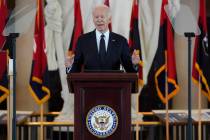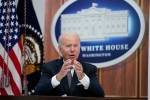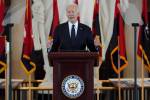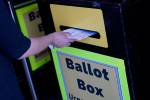Free speech on the taxpayer dime ain’t free
The Institute for Justice has persuaded the U.S. Supreme Court to hear its argument that an Arizona law providing taxpayer money to candidates for public office is an unconstitutional abridgement of free speech.
The court this past summer blocked provisions of the law during the campaign season after the 9th U.S. Circuit Court of Appeal upheld the law.
Under the state’s Clean Elections Act, candidates are given cash to finance their campaigns, but must forgo private contributions and agree to attend candidate forums. Since some candidates decline to dip their snouts in the public trough and proceed to spend more than those on the dole, the law “levels the playing field” by matching with public dollars the electioneering of the privately funded candidate. It even matches the spending of independent groups favoring an opposing candidate.
A story on the Institute for Justice’s website explains, “The harder an independent group or traditionally financed candidate works, the more the government-subsidized candidates benefit. The Act curbs speech, discourages participation and limits what voters will hear about politics.”
The arguments in this case are a mirror image of the case of Davis v. FEC, which was ruled on by the high court in 2008. Instead of addressing variable funding, that case addresses aspects of McCain-Feingold that allowed variable contribution caps depending on an opponent’s means to self finance a campaign.
Here is a portion of Justice Samuel Alito’s ruling in Davis:
The Government maintains that §319(a)’s asymmetrical limits are justified because they “level electoral opportunities for candidates of different personal wealth.” Brief for Appellee 34. “Congress enacted Section 319,” the Government writes,” “to reduce the natural advantage that wealthy individuals possess in campaigns for federal office.” Id., at 33 (emphasis added). Our prior decisions, however, provide no support for the proposition that this is a legitimate government objective. See Nixon, 528 U. S., at 428 (Thomas, J., dissenting) (“ ‘[P]reventing corruption or the appearance of corruption are the only legitimate and compelling government interests thus far identified for restricting campaign finances’ ” (quoting National Conservative Political Action Comm., supra, at 496–497)); Randall, 548 U. S., at 268 (Thomas, J., concurring in judgment) (noting “the interests the Court has recognized as compelling, i.e., the
prevention of corruption or the appearance thereof”). On the contrary, in Buckley, we held that “[t]he interest in equalizing the financial resources of candidates” did not provide a “justification for restricting” candidates’ overall campaign expenditures, particularly where equalization “might serve … to handicap a candidate who lacked substantial name recognition or exposure of his views before the start of the campaign.” 424 U. S., at 56–57. We have similarly held that the interest “in equalizing the relative ability of individuals and groups to influence the outcome of elections” cannot support a cap on expenditures for “express advocacy of the election or defeat of candidates,” as “the concept that government may restrict the speech of some elements of our society in order to enhance the relative voice of others is wholly foreign to the First Amendment .” Id., at 48–49; see also McConnell, supra, at 227 (noting, in assessing standing, that there is no legal right to have the same resources to influence the electoral process). Cf. Austin, supra, at 705 (Kennedy, J., dissenting) (rejecting as “antithetical to the First Amendment ” “the notion that the government has a legitimate interest in restricting the quantity of speech to equalize the relative influence of speakers on elections”).
The argument that a candidate’s speech may be restricted in order to “level electoral opportunities” has ominous implications because it would permit Congress to arrogate the voters’ authority to evaluate the strengths of candidates competing for office. See Bellotti, supra, at 791–792 (“[T]he people in our democracy are entrusted with the responsibility for judging and evaluating the relative merits of conflicting arguments” and “may consider, in making their judgment, the source and credibility of the advocate”). Different candidates have different strengths. Some are wealthy; others have wealthy supporters who are willing to make large contributions. Some are celebrities; some have the benefit of a well-known family name. Leveling electoral opportunities means making and implementing judgments about which strengths should be permitted to contribute to the outcome of an election. The Constitution, however, confers upon voters, not Congress, the power to choose the Members of the House of Representatives, Art. I, §2, and it is a dangerous business for Congress to use the election laws to influence the voters’ choices. See Bellotti, 435 U. S., at 791, n. 31 (The “[g]overnment is forbidden to assume the task of ultimate judgment, lest the people lose their ability to govern themselves”).
Sounds like IJ might have an ally in Alito.
Here is an IJ explanation of the Arizona law in fable-like terms:























